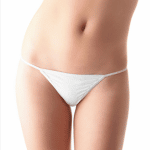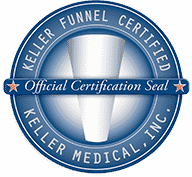At Dr. Bohley Cosmetic Surgery in Portland, patients who are interested in pursuing liposuction surgery frequently ask Dr. Michael F. Bohley and his staff the following questions.
Liposuction, also known as lipoplasty, liposculpture or simply lipo is a plastic surgery procedure that is designed to contour the body by removing excess subcutaneous fat, or fat that is found below the skin.
What Is the Liposuction Procedure Like?
Before beginning the liposuction procedure, Dr. Bohley marks the regions on your body where he will remove excess fat. He then administers the type of anesthesia that you and he agreed upon during your pre-operative appointments. Anesthesia may be local, general or intravenous (IV) sedation.
During the liposuction procedure, Portland plastic surgery provider Dr. Bohley typically injects a tumescent solution containing saline solution (i.e., sterile salt water), adrenaline and local anesthetic, and then removes the unwanted fat. The tumescent solution causes the skin to swell and become firm, making it easier to eliminate fat while lessening the bleeding and bruising associated with traditional liposuction methods.
Dr. Bohley then makes a small incision in the treated area. He inserts a thin, hollow tube, called a cannula, through the incision to remove fat deposits from under the skin. Dr. Bohley may employ laser or ultrasound energy to expedite the fat removal. He will discuss the available liposuction options with you during consultation and decide on the best treatment protocol for you.
What Areas of the Body Can Liposuction Treat?
Dr. Bohley can use liposuction to sculpt the abdomen, thighs, hips, buttocks, parts of the back, upper arms, neck and chin areas.
Am I a Suitable Candidate for Liposuction?
If you are in good overall health and have sound skin elasticity, you may be a suitable candidate for liposuction. You must be close to or slightly above your desired weight, but have stubborn fat pockets that resist a healthful diet and regular exercise. Please note that liposuction is not intended to help you lose a massive amount of weight, nor will it restore skin elasticity or treat cellulite. To be a suitable candidate for liposuction, you must have realistic expectations regarding the outcome of this plastic surgery procedure.
To find out if you are a suitable liposuction candidate or to schedule a personal consultation, please contact the Dr. Bohley Cosmetic Surgery office by calling (503) 253-3458 today.
What Is the Recovery Period Like?
Liposuction is typically performed on an outpatient basis, with the entire procedure taking about two to three hours, depending on how many areas of the body Dr. Bohley is treating and how much fat he must remove. Liposuction patients need to have someone drive them to and from surgery.
Right after liposuction surgery, a staff member at Dr. Bohley Cosmetic Surgery will place a compression garment on the treated region(s). This minimizes any postoperative bleeding or swelling. You must wear the compression garment at all times for about three weeks following surgery, or as advised by Dr. Bohley.
You can expect the treated area(s) to be sore or numb for about three to four weeks. You will also notice fluid draining from the incision sites for the first few days following surgery. These postoperative symptoms are normal and will diminish with time. You should not do any heavy lifting, strenuous activity or exercise for three weeks or so following surgery. You should also expect to take about three days off from work or your normal routine. Dr. Bohley will provide specific instructions regarding the recovery period that you must follow to ensure proper healing.
Are Liposuction Results Permanent?
Liposuction is considered permanent in that any fat cells that Dr. Bohley removes during surgery will not grow back. Remaining fat cells (in both the treated and untreated areas) will become enlarged with moderate weight gain, but they can also contract again with moderate weight loss. Nonetheless, major weight gain (i.e., about 10 percent or more of your body weight) can cause new fat cells to grow in both the treated and untreated areas. This is why it is important for those undergoing liposuction to be at a stable weight that they feel they can maintain after surgery.








